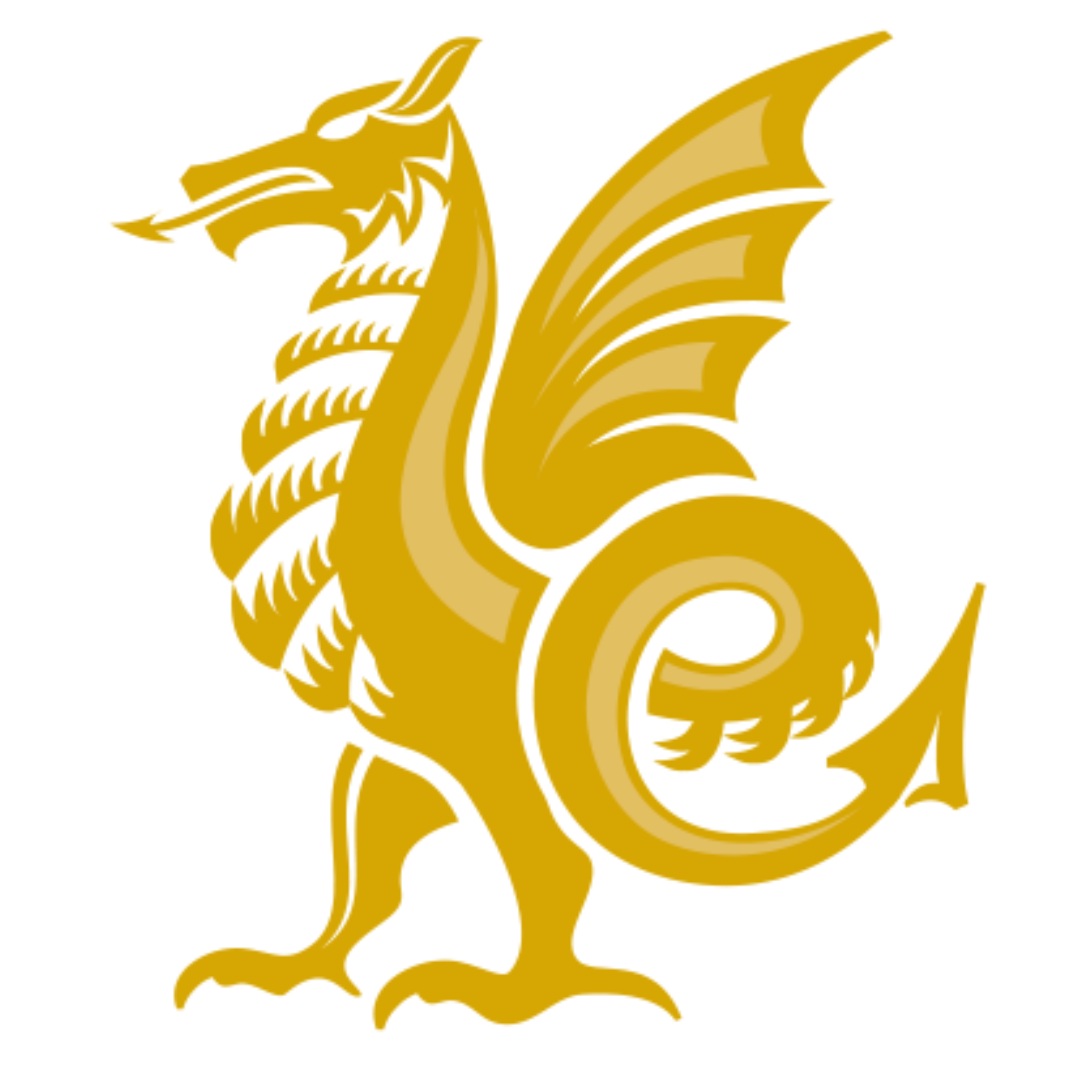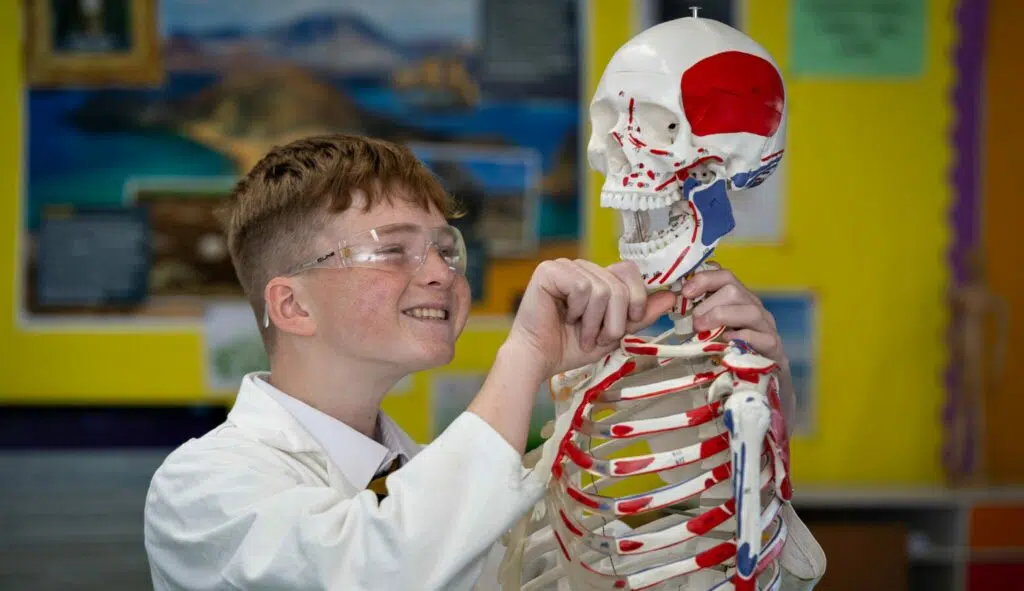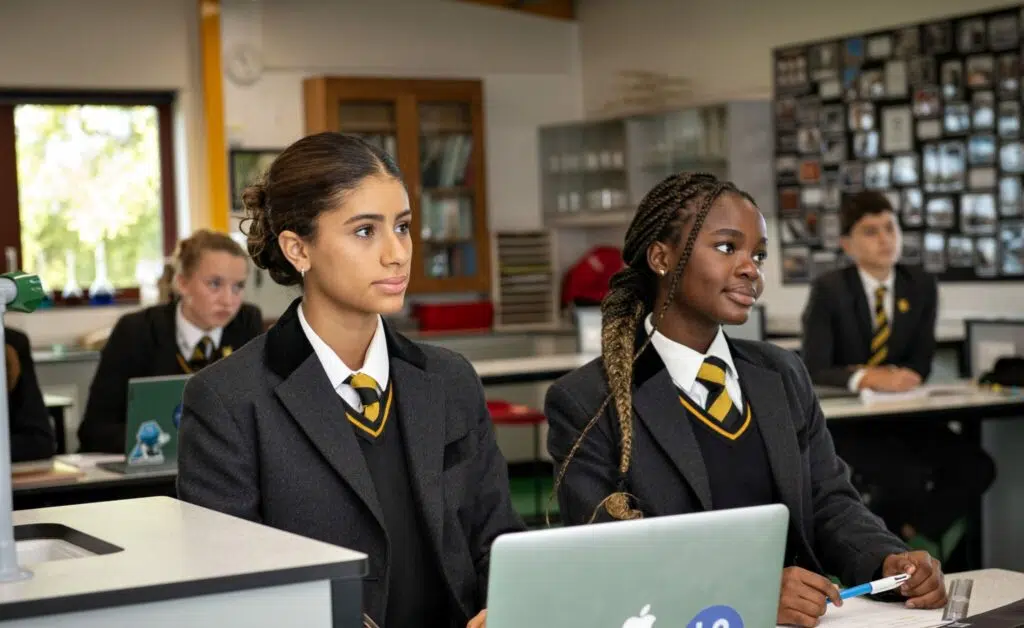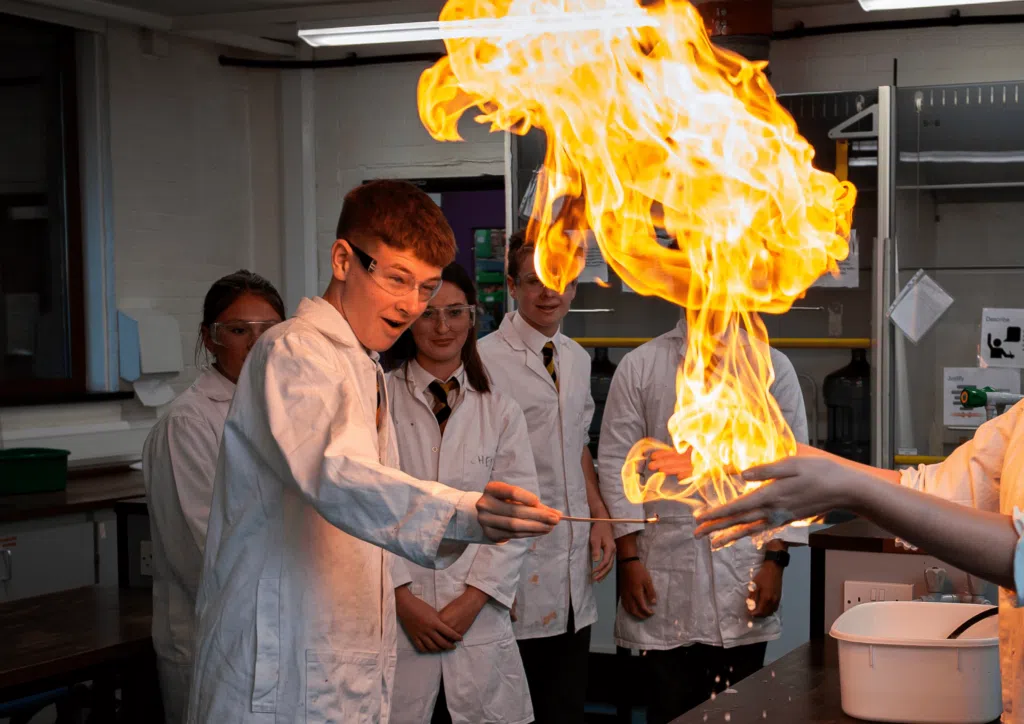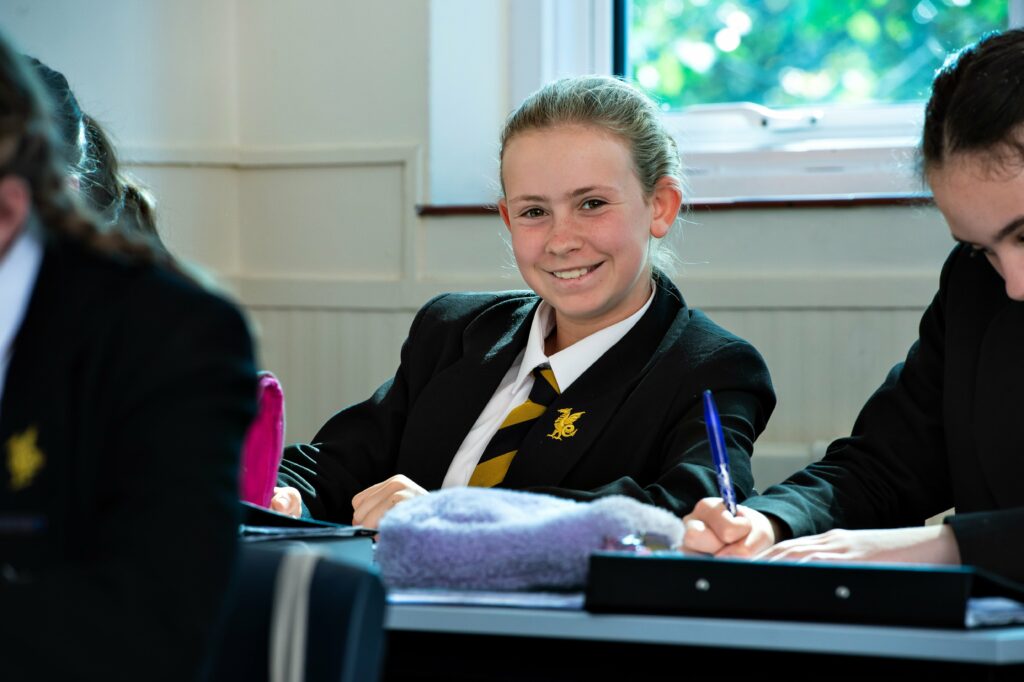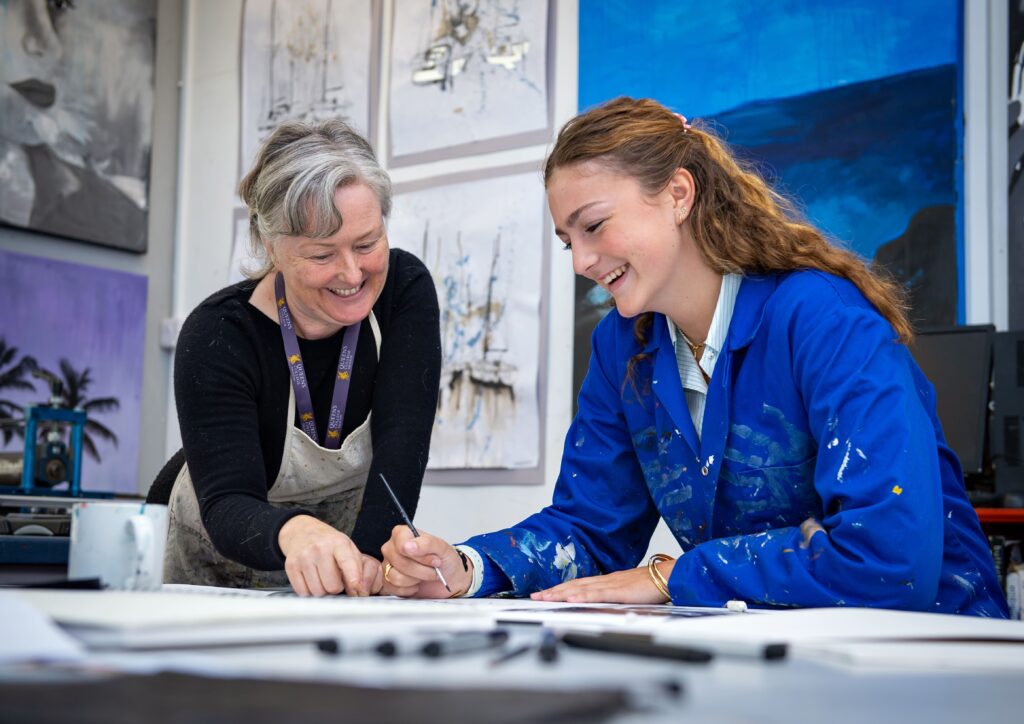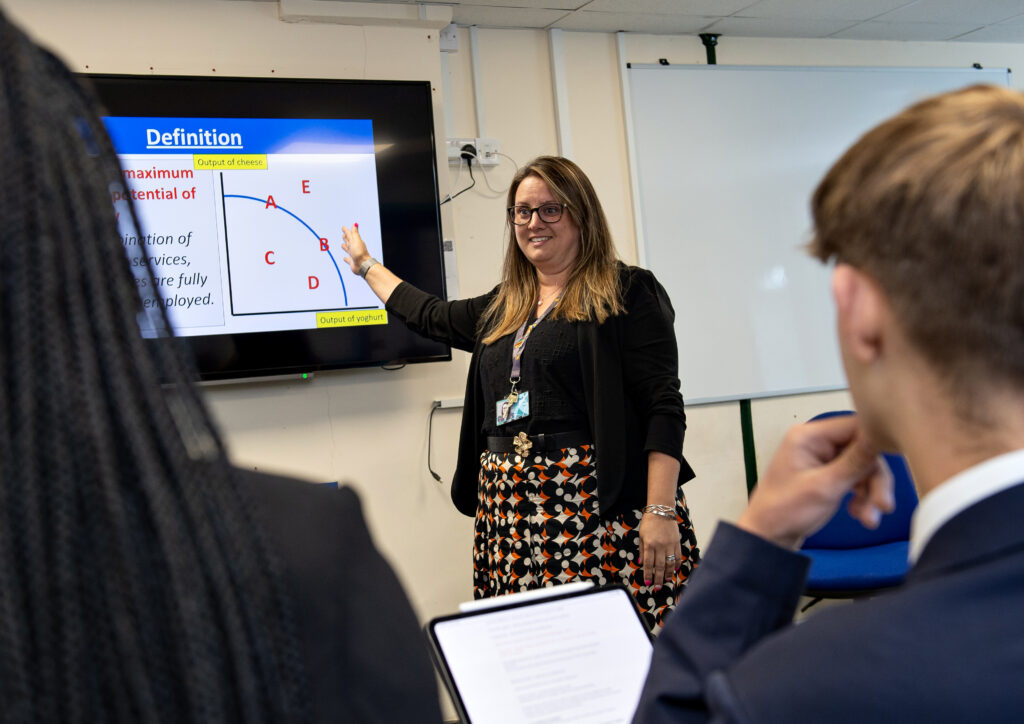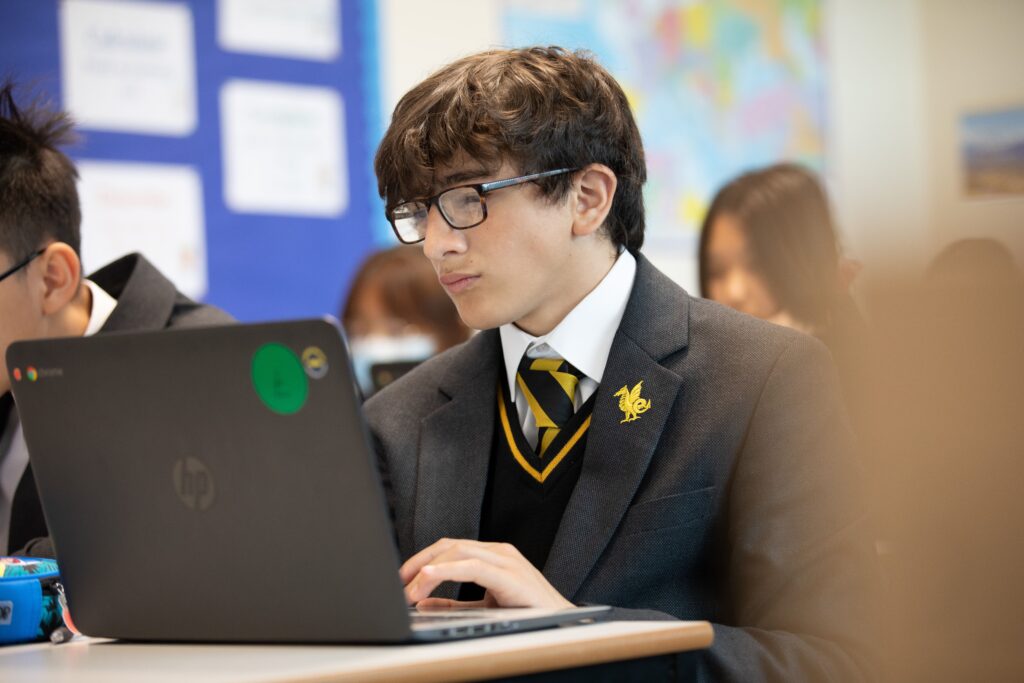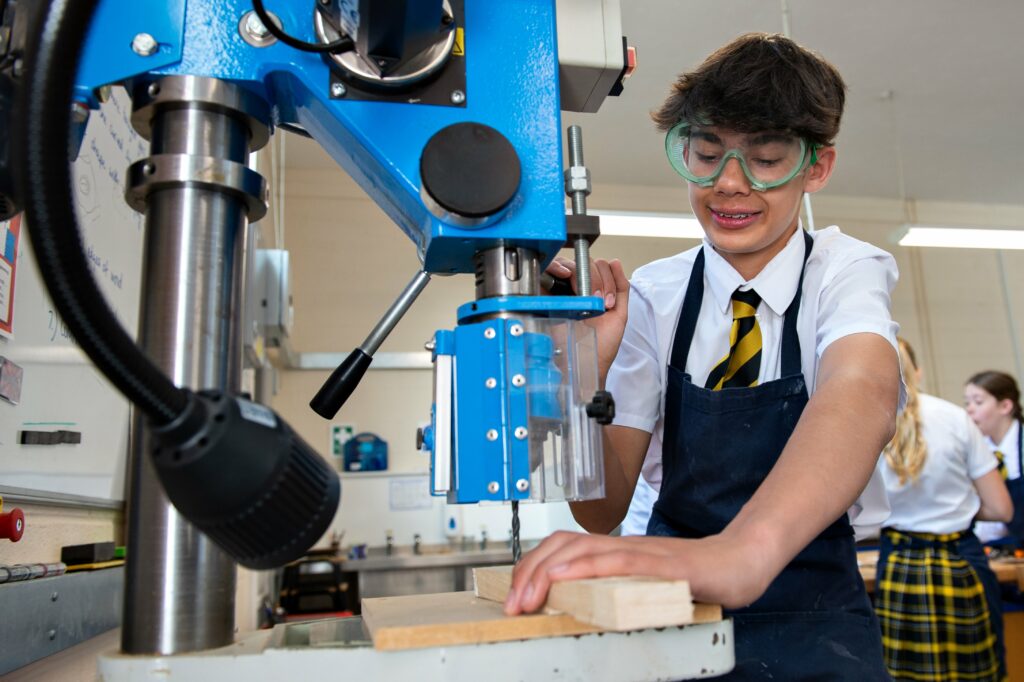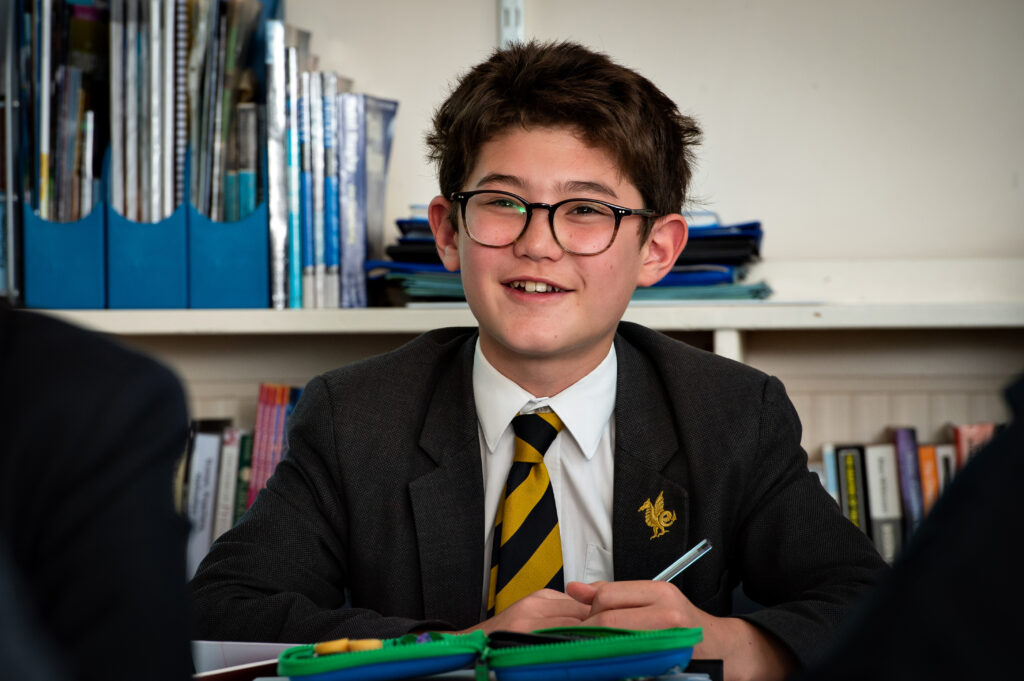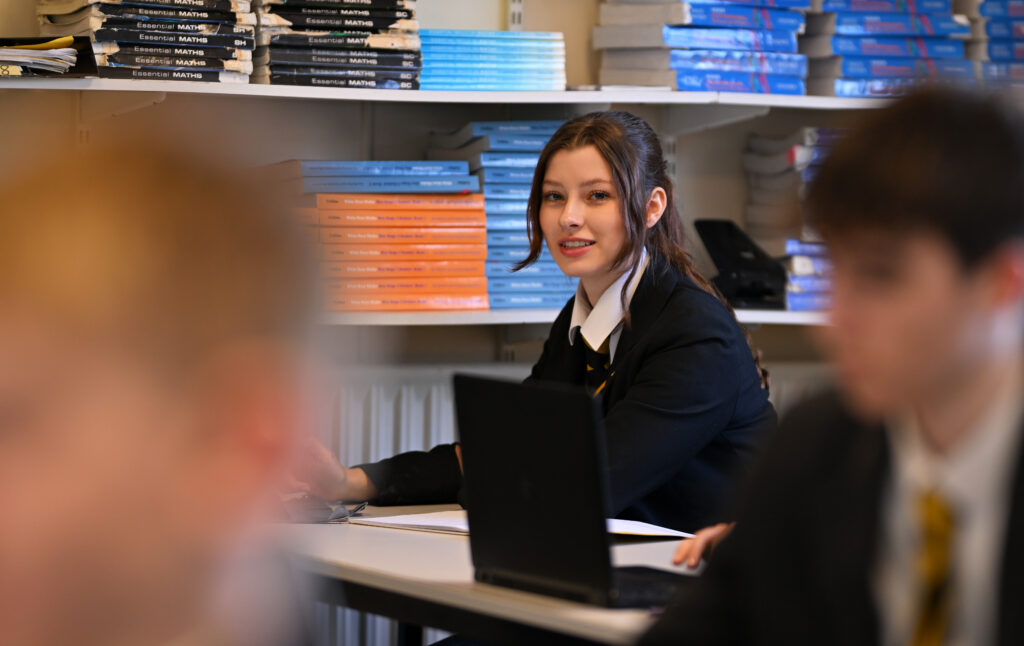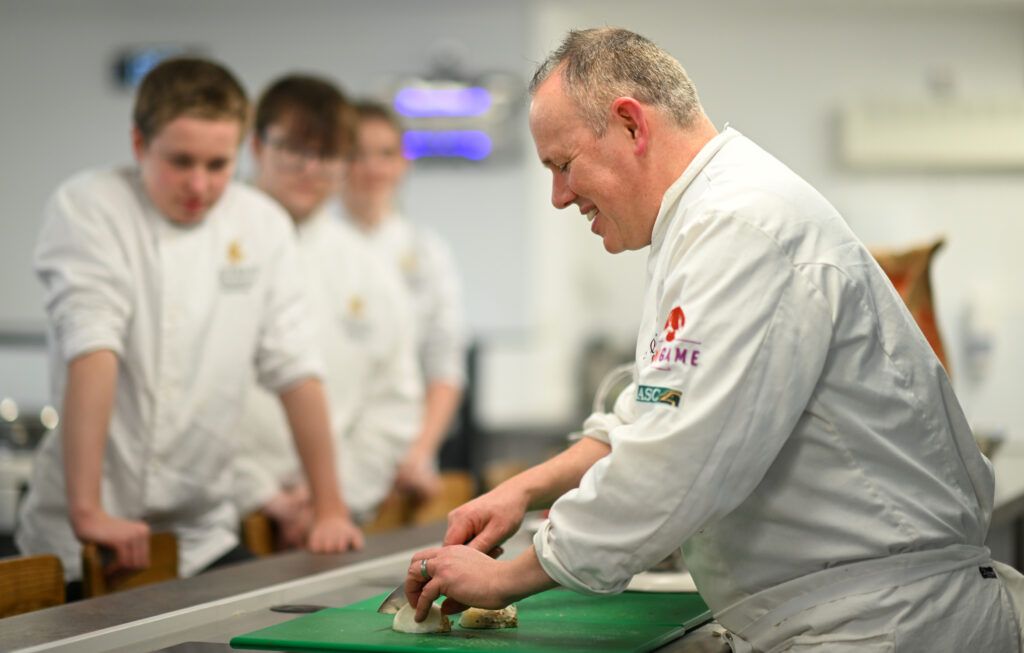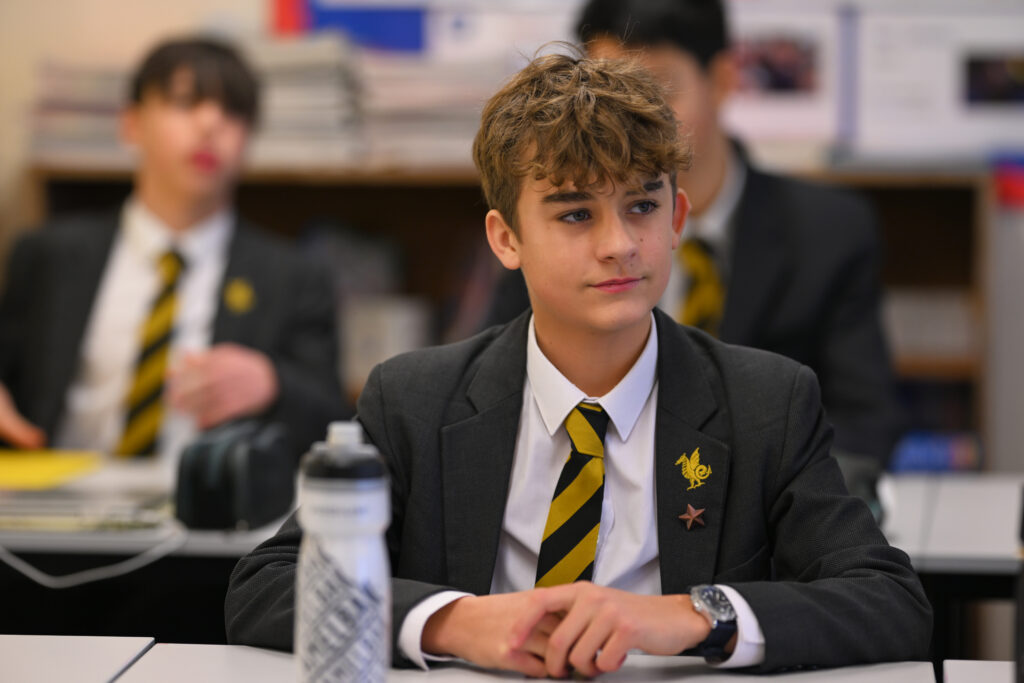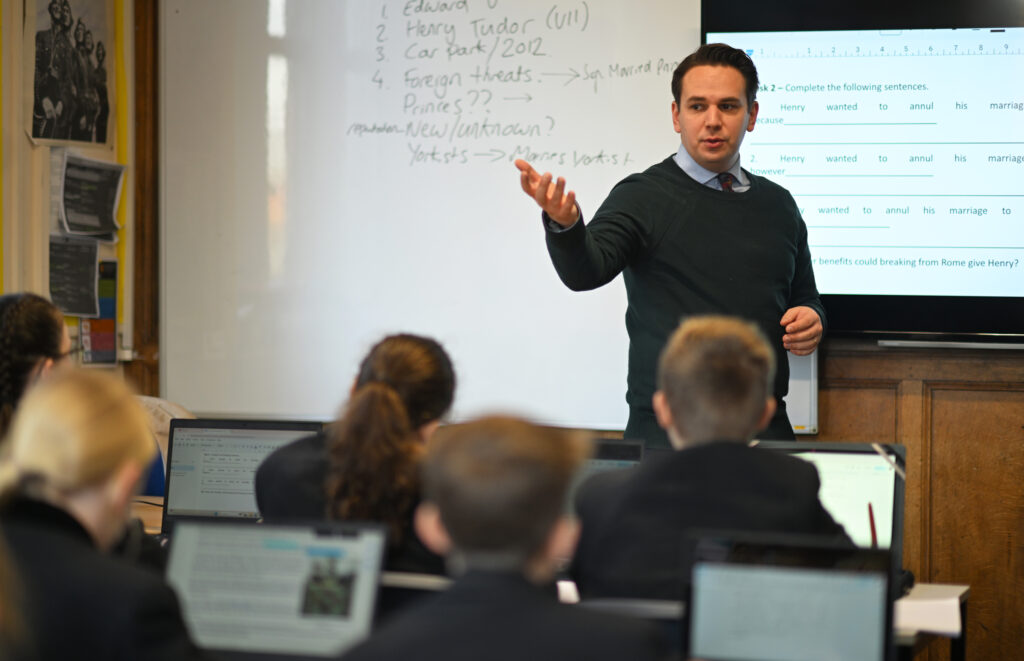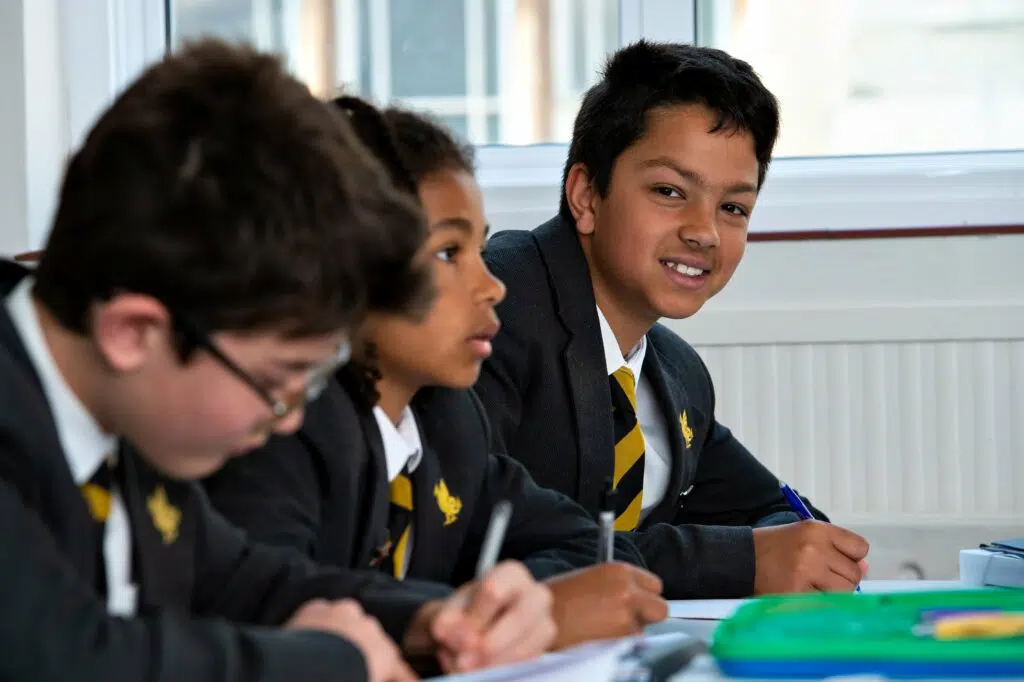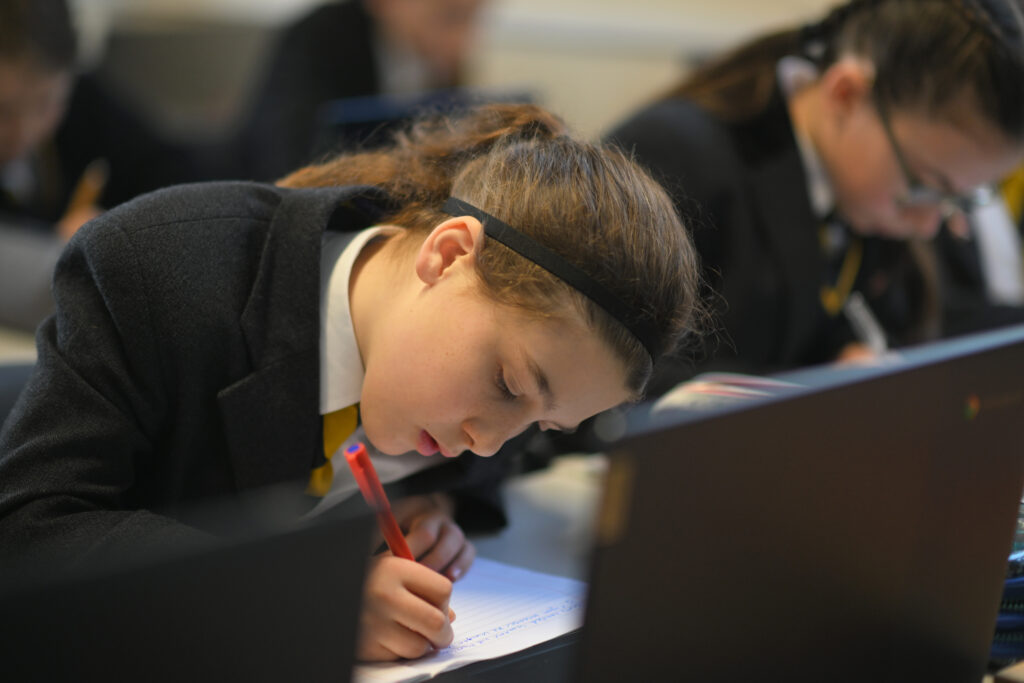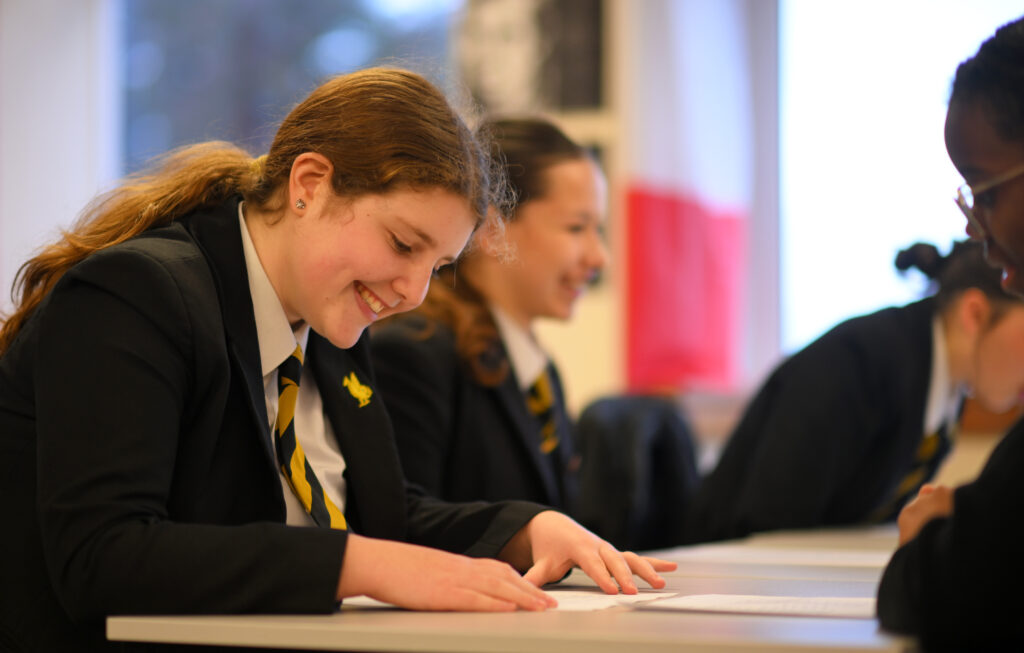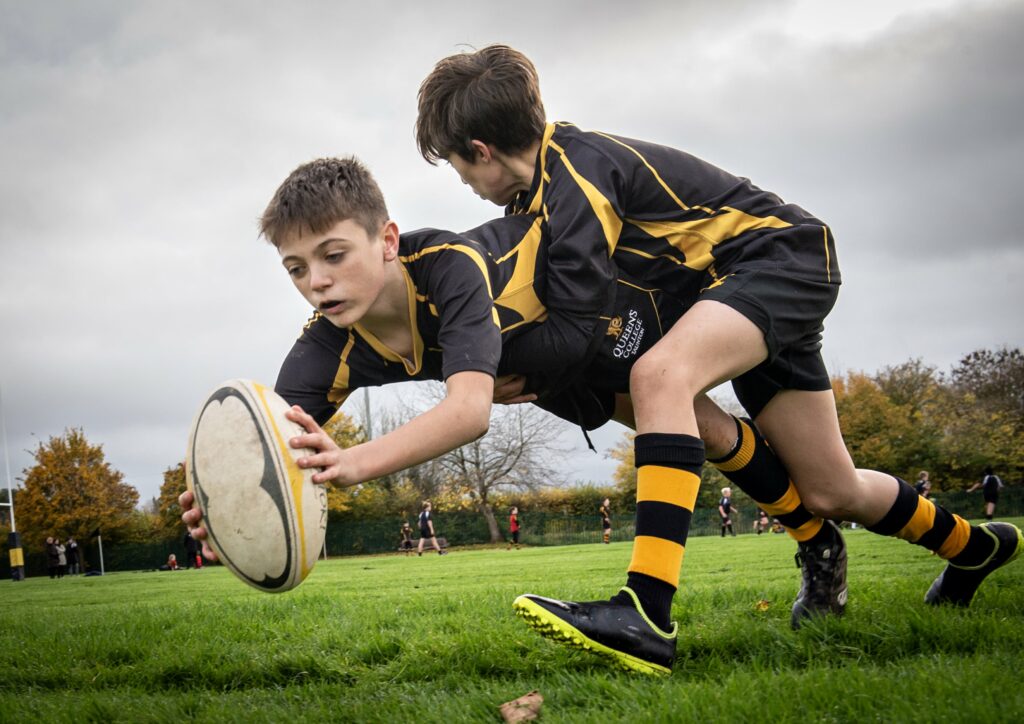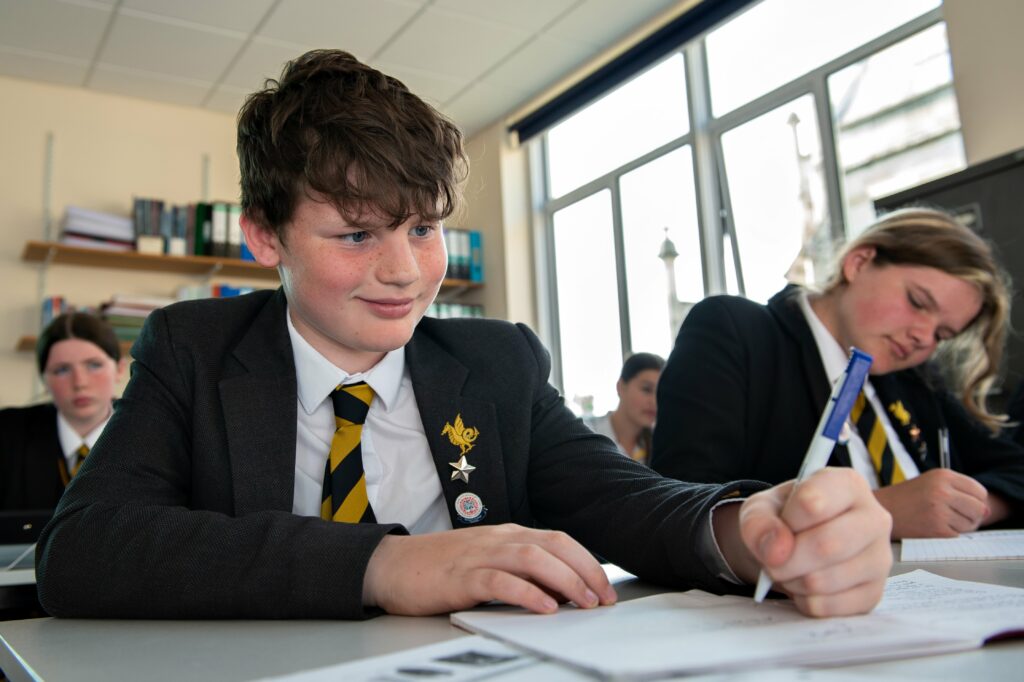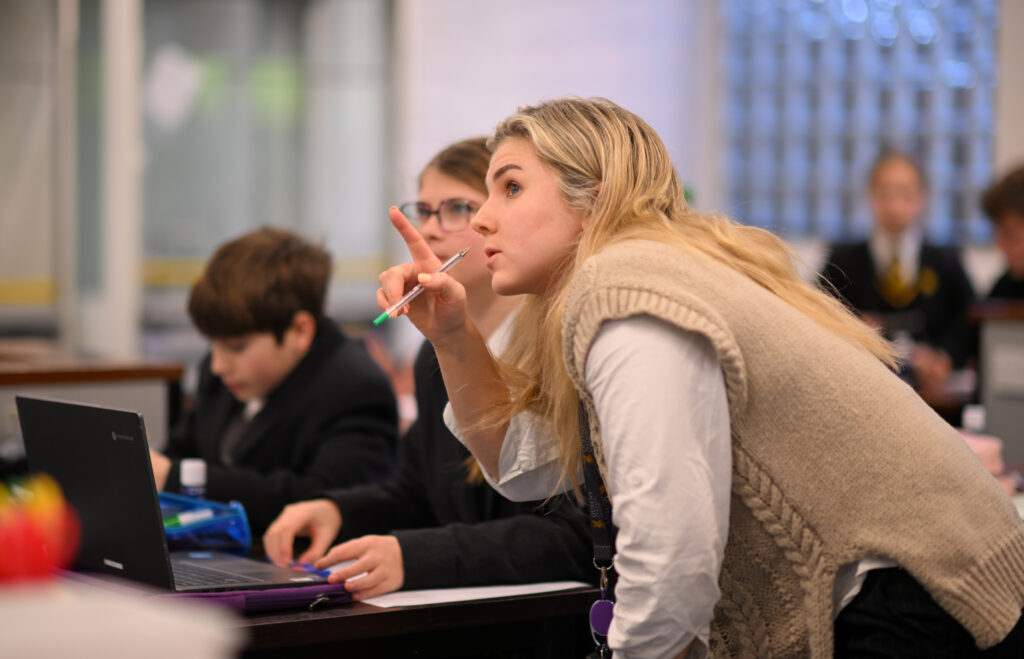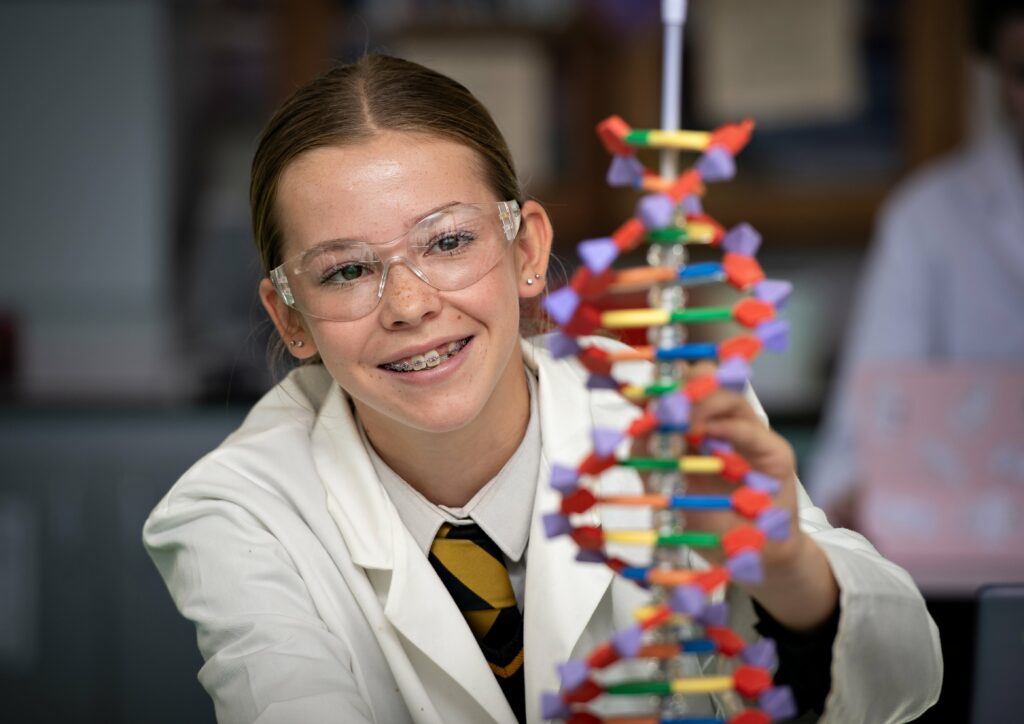Why study Computer Science?
Almost every aspect of our lives is affected by computers, from how we travel to school and manage our social lives to vast networks that control global communication, trade, finance and transportation. In fact, using computers has become so integral to our daily lives it would be difficult to imagine life without them.
Understanding how computing shapes our world and learning the skills necessary to be a part of this digital revolution is vital for everyone. Studying Computer Science is a key pathway for young people to secure their role in a rapidly evolving job market that already demands high levels of computing skill and literacy.
Subject content
- Topic 1: Computational thinking – understanding algorithms.
- Topic 2: Data Representation – binary, representation and storage.
- Topic 3: Computers – understanding hardware and software components.
- Topic 4: Networks – understanding computer networks and network security.
- Topic 5: Issues and impact – computer technologies’ impact on us, including ethical, legal and ownership issues.
- Topic 6: Problem solving with programming.
Assessed by two papers
Paper 1: Principles of Computer Science
What is assessed
Algorithms, construction of truth tables, binary, data representation, data storage, compression, hardware and software components of computer systems, computer networks, network security, the impact of computing on individuals, society and the environment, including ethical, legal and ownership issues.
- The content for this assessment will be drawn from subject content Topic 1 to 5 above.
How it is assessed
Written exam: 1 hour 30 minutes – 75 marks – 50% of GCSE
Made up of a mix of multiple choice, short-answer and longer-answer questions assessing a pupil’s theoretical knowledge of computers and systems.
Paper 2: Application of Computational Thinking
What is assessed
Understanding what algorithms are, what they are used for and how they work in relation to creating programs. It also covers understanding how to decompose and analyse problems and the ability to read, write, refine and evaluate programs.
● The content for this assessment will be drawn from subject content Topic 6 above.
How it is assessed
Onscreen exam: 2 hours – 75 marks – 50% of GCSE
A mix of coding problems assessing programming skills and evaluating the student’s practical ability to read, write, refine and evaluate programs. These are done as an onscreen assessment using an Integrated Development Environment in the Python language.
Programming skills
A key part of the delivery of this specification is the development of students’ programming skills. Throughout their course of study, students must be given the opportunity to design, write, test and refine, using one or more high-level programming language(s) with a textual
program definition. In developing these skills we are free to choose the context. In assessments where programming skills are assessed, students are assessed on their ability to: design, write, test, and refine a program to a set task/brief (or to solve a problem).



